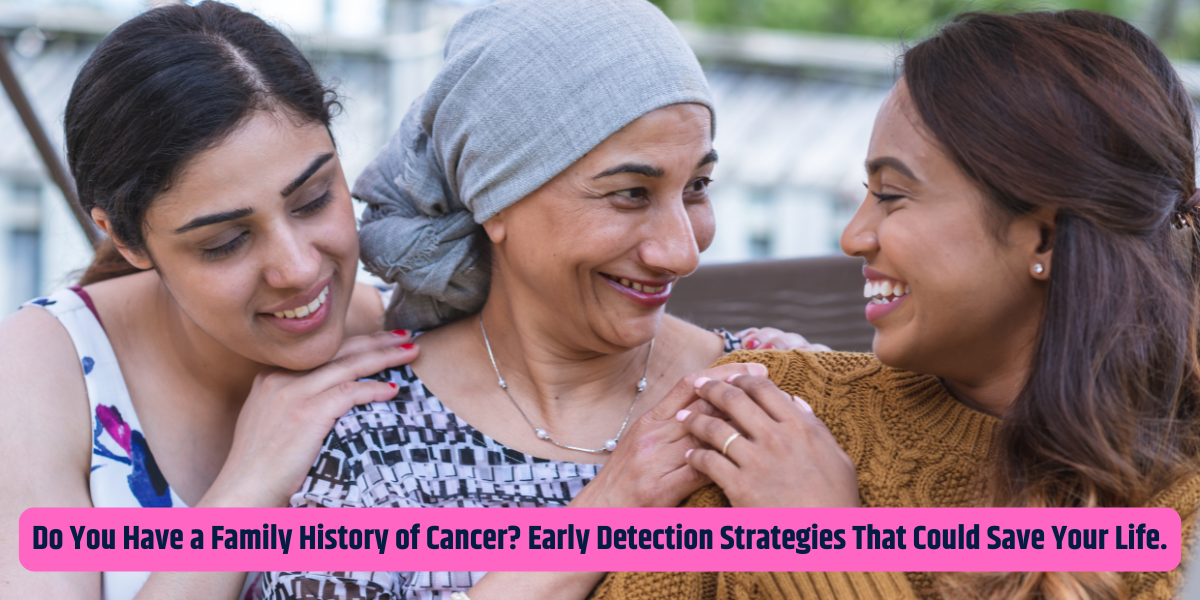Do You Have a Family History of Cancer? Early Detection Strategies That Could Save Your Life.
A family history of cancer can feel concerning, but understanding and using early detection strategies can make a big difference. If you’re looking for insights, consulting with Dr. Aashish Pokharkar, a cancer surgeon in PCMC, can help guide you through the process. Here are some common questions people have when it comes to family cancer history and ways to stay proactive.
A Family History of Cancer
Having a family history of cancer means that one or more close relatives, like parents, siblings, or grandparents, have been diagnosed with cancer. This could increase the chance of developing certain types of cancer, as some cancers have genetic links that can be passed down.
Does Having a Family Member with Cancer Mean I Will Get It?
Not necessarily. Family history raises the risk, but it doesn’t guarantee you will get cancer. Lifestyle choices, environmental factors, and regular screenings play a significant role. While genetic factors can influence risk, proactive steps can help manage and sometimes lower that risk.
What Types of Cancer are Linked to Family History?
Some cancers are more likely to have a hereditary connection, including breast, ovarian, colon, prostate, and certain types of skin cancer. If you have close relatives with one of these cancers, especially at a younger age, it might increase your own chances. Talking with a healthcare provider like Dr. Aashish Pokharkar, a noted cancer surgeon in PCMC, can help assess which screenings are right for you.
Are There Tests to See if I’m at Risk?
Yes, genetic testing is available to identify specific gene mutations linked to cancer, such as BRCA1 and BRCA2 for breast and ovarian cancer. A genetic counselor or doctor can discuss whether testing is a good choice for you based on your family history. Keep in mind that testing doesn’t predict cancer but helps identify potential risk factors.
What Can I Do to Lower My Cancer Risk?
While you can’t change your genes, healthy habits can reduce overall risk. These include:
Maintaining a Balanced Diet: Eating more fruits, vegetables, and whole grains can support overall health.
Exercising Regularly: Physical activity is beneficial for maintaining a healthy weight, which can reduce cancer risk.
Avoiding Tobacco and Limiting Alcohol: Smoking and excessive drinking can increase the risk of many cancers.
Protecting Your Skin: Using sunscreen can help prevent skin cancer, especially if you have a family history of melanoma.
What Screenings Should I Consider?
The right screenings depend on the type of cancer and your family history. Some recommended screenings include:
Mammograms for Breast Cancer: For those with a family history, it may be recommended to start earlier than the standard age.
Colonoscopies for Colon Cancer: Early and regular screenings can detect precancerous changes.
Prostate Screening for Men: Family history can make prostate screenings more important.
It’s helpful to discuss with a healthcare provider, like Dr. Aashish Pokharkar, about a screening plan suited to your individual history.
How Often Should I Get Screened?
Screening schedules vary based on personal risk factors. People with a family history of cancer might need more frequent screenings. For example, some may need annual screenings instead of every few years. Consulting with your doctor about a screening plan helps stay proactive.
Is Knowing My Family Health History Important?
Absolutely. Understanding who in your family had cancer, their type of cancer, and their age at diagnosis can help doctors assess your risk level. When you share this information with healthcare providers, they can guide you on preventive steps and screenings.
Should I Talk to My Kids About Our Family Cancer History?
If there’s a history of cancer in your family, it can be beneficial to discuss it with your children as they grow older. Knowing family history can empower them to make healthier lifestyle choices and to stay informed about their health.
What Should I Do if I’m Worried About My Risk?
Feeling worried about cancer risk is natural, especially if there’s a family history. Start by talking to a healthcare provider or genetic counselor. They can discuss your concerns, help assess your risk, and provide guidance on monitoring and screening options.
While a family history of cancer may feel daunting, staying informed and proactive with healthy habits and regular screenings can make a significant impact on overall health. Consulting with Dr. Aashish Pokharkar, a dedicated cancer surgeon in PCMC, can help you stay on top of your health. Being aware of your family’s health history and understanding the right steps for early detection are important ways to look out for yourself and your family members.





